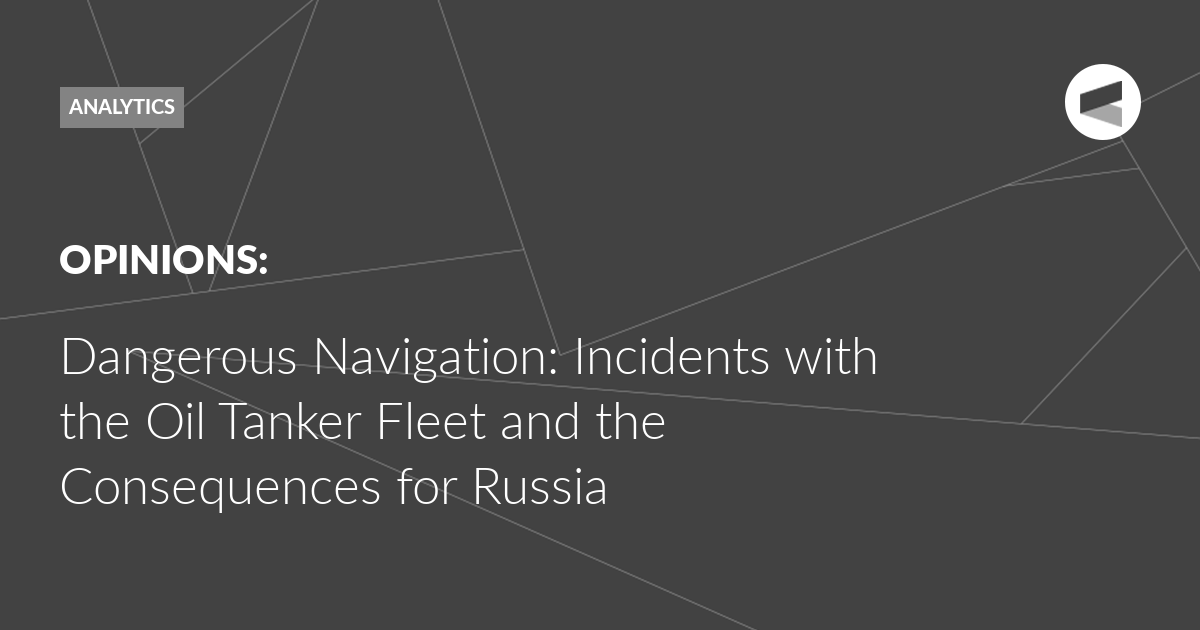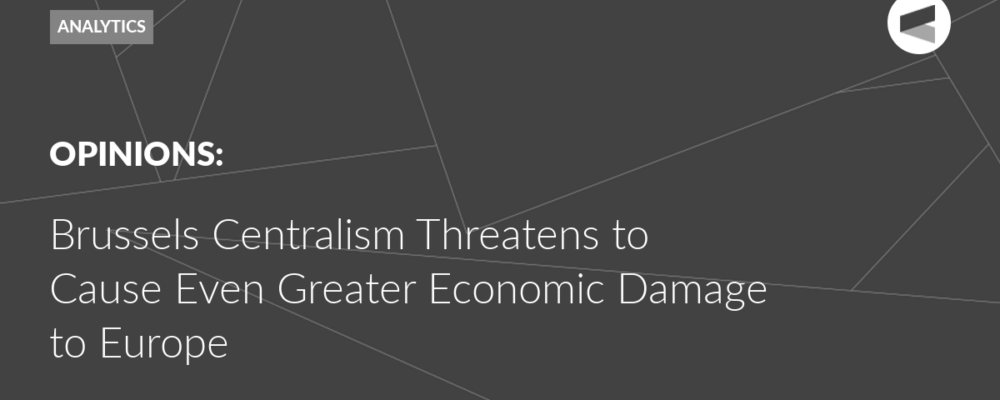It is obvious that Russian companies organizing the transportation of Russian oil with the involvement of both domestic and foreign ship owners will have to invest in additional measures to ensure fleet insurance, its environmental and physical safety, aimed at countering the above-described steps of unfriendly countries, including possible new sabotage operations against ships, Evgeny Tipailov and Ivan Angulo write.
In the first months of 2025, the world media was filled with news about incidents that damaged oil tankers in the Mediterranean Sea and a detained tanker in the Baltic Sea. According to publications, two explosions were recorded on the Seajewel vessel in a port in northern Italy. Another vessel, the Seacharm, was damaged by an explosion in a Turkish port. The Grace Ferrum vessel, sailing under the Liberian flag, was damaged in Libyan waters. In April, the Estonian authorities detained the Kiwala vessel.
By a strange coincidence, as claimed in media reports, all these tankers, according to monitoring data on their movements, had called at Russian ports shortly before the incidents and could have been involved in transporting Russian oil. Various versions of what happened have been put forward, however, due to the limited information, we will refrain from hypotheses on the possible causes and perpetrators of these incidents and will draw attention to the following fundamental circumstances.
First, against the backdrop of the Special Military Operation (SMO), unfriendly states continue to make active efforts to limit the export potential of the Russian economy and reduce Russia’s income from raw material exports. For these purposes, the Collective West has introduced numerous sanctions against Russian export and logistics capabilities, as well as the mechanism of the so-called “price cap” on oil and a basket of oil products, adopted by the United States jointly with the G7 countries, the EU and Australia (Price Cap Coalition), applied since December 2022.
For the effective implementation of this mechanism and the fight against the so-called Russian “shadow fleet”, the coalition has issued and regularly updates the relevant recommendations – Updated Price Cap Coalition Advisory for the Maritime Oil Industry and Related Sectors (latest revision dated October 21, 2024). Under the plausible objectives of ensuring safe shipping, protecting the environment, and combating sanctions evasion, the coalition has made the following key recommendations that Western shipping industry representatives should insist on when interacting with their counterparties:
• risk and liability insurance with insurers from P&I Clubs recognized by the coalition;
• vessel classification in societies that are members of the International Association of Classification Societies (IACS);
• continuous use of automatic identification systems (AIS) in shipping;
• strict compliance of vessels, as well as ship-to-ship cargo handling operations, with the requirements of applicable international conventions;
• due diligence and control of the history of vessels and their owners, monitoring of trade operations, and other measures.
Second, these measures were largely reproduced in the International Maritime Organization Resolution No. A.1192(33) of 06 December 2023 and the European Parliament (EP) Resolution No. 2024/2885 (RSP) of 14 November 2024. However, the EU representatives went somewhat further and additionally outlined a number of self-incriminating political narratives regarding Russian maritime logistics.
In particular, the EP resolution places special emphasis on the following: a) vessels of the Russian “shadow fleet” navigate European seas on a daily basis, regularly turn off AIS and transfer oil and oil products from ship to ship; b) the vessels do not comply with international standards of risk and liability insurance and create significant environmental and economic risks for EU member states; c) the vessels can be used in various hybrid operations against EU member states (e.g. against underwater network infrastructure); (d) taking this into account, EU Member States and their economic operators must ensure the safety of maritime navigation and prevent pollution of European seas, including through the forced detention and inspection of “shadow fleet” vessels.
In furtherance of these narratives, for example, on 23 April 2025, the European Commission adopted amendments to the EU Ship Monitoring Directive 2022/59/EU, according to which all ships passing through EU waters (even if they do not call at ports in the relevant EU Member States) will be required to provide information on ship insurance. The rationale for adopting these measures was safety and environmental concerns in maritime shipping.
Third, a significant force limiting or undermining the effectiveness of all the above-mentioned measures is the real economic interest of friendly and neutral states in acquiring affordable and high-quality Russian oil, despite the aforementioned restrictions. Politically, these measures are perceived by consumers of Russian oil as biased. In such circumstances, as “legal” instruments are exhausted, unfriendly countries may resort to measures of a different nature. In particular, it can be assumed that the explosions of tankers in the Mediterranean Sea could have been aimed at provoking an environmental disaster, blaming Russia and denigrating the Russian tanker fleet and, as a consequence, tightening the policies of unfriendly countries (primarily EU member states) in accordance with the approaches described above.
Fourth, an important economic consequence and goal of the incidents in question could be a further increase in insurance premiums and freight rates for vessels presumably associated with the transportation of Russian oil and oil products, as well as a ban on such vessels entering various international ports. This is due to the fact that ship owners, insurance companies, terminal operators, port administrations and other participants in maritime shipping, against the background of the corresponding risks (economic, reputational or legal), may refrain from providing the relevant services and reduce their appetite for risks.
Fifth, it should be noted that the protective measures that could theoretically be taken at the state level by the Russian Federation are limited. Some experts, for example, propose organizing patrols of the main sea routes of tankers with Russian oil by Navy vessels.
However, how realistic is it to allocate warships in quantities sufficient to support the entire tanker fleet, especially in the face of the risk of engaging in combat with the navies of unfriendly states during patrols? This issue requires an assessment by specialized experts, but based solely on their basic understanding of logistics, such a scenario seems unlikely.
Moreover, the sabotage operations in question were not conducted in neutral or foreign internal waters, but within the ports of NATO member states – locations where Russian warships are, under current geopolitical conditions, highly unlikely to appear. It is also worth noting that contemporary warfare and sabotage increasingly rely on unmanned systems and cyber operations, which offer greater efficiency and deniability than conventional military actions. These methods allow for precise strikes with minimal attribution, making them particularly attractive in covert or hybrid conflicts.
Conclusions and recommendations
The conducted analysis gives reasons to believe that within the framework of the current policy of unfriendly countries, one of the priorities is the physical obstruction of maritime logistics of Russian oil and oil products in connection with issues of compliance with insurance requirements, ecology and safety of navigation. This is important in the context of the fact that these issues are not directly related to sanctions, and the sanctions restrictions and the “price cap” themselves have proven to be largely ineffective, requiring new instruments of pressure on Russian exports.
In terms of response, it is obvious that Russian companies organizing the transportation of Russian oil with the involvement of both domestic and foreign ship owners will have to invest in additional measures to ensure fleet insurance, its environmental and physical safety, aimed at countering the above-described steps of unfriendly countries, including possible new sabotage operations against ships.
Returning to specific measures that the Russian Federation could take at the state level, it is necessary to consider alternative approaches to ensuring the security of maritime transportation, including cooperation with friendly states in the field of intelligence and exchange of information on possible threats. A separate strategic direction should be measures to create insurance systems and unbiased classification societies independent of unfriendly countries. It is also important to develop systems for monitoring and responding to threats, which can be based on the use of modern satellite technologies and other means of observation. This will allow more effective monitoring of the situation in key areas and a quick response to potential threats, minimizing the risks for ships transporting Russian oil.
The Valdai Discussion Club was established in 2004. It is named after Lake Valdai, which is located close to Veliky Novgorod, where the Club’s first meeting took place.
Please visit the firm link to site






